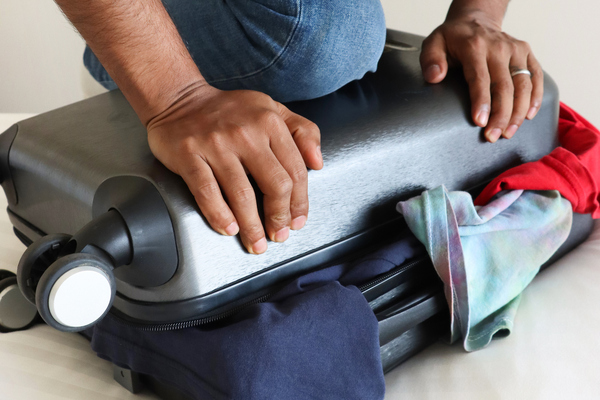The Big Question: Has travel added too much capacity for summer 2024?
Travel is hopeful of a bumper summer with record Atol capacity available to sell, but is there sufficient demand to shift it all without a fire sale?
At TTG, we believe the frank exchange of views and ideas is vital to stimulate debate. Our monthly Big Question series continues as we assess whether the industry’s hopes for the summer can be met amid the ongoing squeeze on living costs and the post-pandemic increase in holiday prices.
A record 31.6 million Atol-protected seats are estimated to be in the market this summer, up from a pre-Covid high of 28 million. And with around half of this capacity – nearly 15 million seats – concentrated in the hands of the UK’s three largest tour operators, travel’s biggest players are clearly confident the wind is in their favour.
Of course, we’ve been here before; travel’s long history is littered with the casualties of price wars, often triggered by surplus capacity. And with the world seemingly entering another period of heightened instability, there’s every likelihood there will be external factors and pressures for airlines, operators and cruise lines to deal with.
While everything pales against the first 18 to 24 months of the Covid crisis, it’s still a highly price-sensitive market, with consumers seemingly still willing – and able – to dial down other areas of non-essential spend to preserve their holidays.
But they are keenly seeking value, with the cost of living and interest rates still running high. There will inevitably be winners and losers come October. There are merits both to being capacity-cautious – setting yourself a target and delivering it while running the risk of not converting the biggest possible slice of the available demand – and going out all guns blazing and then potentially having to slash prices.
“Battles for market share in travel rarely end well,” says former Kuoni chief, now Not Just Travel non-executive director, Derek Jones. Others are more upbeat; Advantage’s Kelly Cookes says extra capacity gives agents more opportunities to sell. So can travel rise to the challenge and avoid the mistakes of its past?
What do you think? Join in the debate in the comments section below, or email feedback@ttgmedia.com. Alternatively, head to one of TTG’s social media channels to get involved.
'There are signs demand is starting to slow’
Tracking authorised passenger volumes for the three years since Covid began to retreat is an eye-opening exercise.
In 2019, before anyone knew what lay ahead, the top 10 Atols added up to nearly 19 million passengers. By 2022, this had dropped to 15 million, as tour operators plotted a cautious return.
And in 2023, this number returned to 19 million.
All very positive and sensible until you realise that for 2024, the equivalent number is 25.8 million – nearly 36% more than last year. That’s a lot of capacity to shift, but is it too much?
Despite the poor economic backdrop, last year was a bounceback year as people caught up on long-delayed travel plans.
So far, that momentum has carried into 2024 bookings, but as we approach the critical late sales period for the peak months of July and August, there are signs demand may be starting to slow.
Former Manchester United manager Alex Ferguson called it “squeaky bum time”. Will operators hold their nerve and their prices, consolidate their programmes and take capacity out of the market? Or will they drop their prices to stimulate demand? Who will blink first?
For consumers, this could be the year to hold their nerve. If they’re flexible on location and dates, holding out for a deal could be a strong tactic. Time, and perhaps the May weather, will tell.
This year was always going to be an aggressive one for capacity growth as the big players set out to win market share post-Covid, but what really matters is what happens next. Battles for market share in travel rarely end well.
Derek Jones is non-executive director at Not Just Travel.
‘The decision to add capacity is undoubtedly a bold move’
As summer approaches, the travel industry is buzzing with anticipation – and rightly so. The UK’s largest tour operators have significantly increased capacity for 2024 in response to the pent-up post-pandemic demand for travel and the travelling public’s eagerness to escape to sunnier climes.
However, this surge in capacity raises questions about the economic pressures of the current climate, global political concerns and sustainability. Travel is not immune to the rising costs of trading, civil and political unrest, climate change and higher operational expenditure. These challenges may be costly for companies already grappling with paper-thin margins and those still in post-Covid recovery mode.
The decision to add capacity is undoubtedly a bold move and reflective of the confidence in the market’s recovery, coupled with the belief consumers will continue to prioritise travel despite the difficult economic and geo-political landscape.
It would be foolhardy not to acknowledge an underlying risk of overcapacity, and the potential for aggressive discounting if sales don’t go to plan. This would erode profits and destabilise the market. The industry must also balance growth against responsibility, ensuring the allure of travel doesn’t eclipse the need for sustainable practices where so many operators are already making substantial in-roads.
While the capacity added by UK tour operators for summer 2024 is a testament to the industry’s grit and resilience, it must be navigated carefully. The coming months will be crucial in determining whether this capacity boost is a stroke of strategic genius or an overzealous gamble.
I’m certainly hoping it’s the former, and that the industry will rise above the challenges to have a record 2024.
Jo Kolatsis is director at Themis Advisory.
‘Nobody knows how much of this extra capacity will be cancelled'
Every so often, there is a battle of the giants at the top of the travel industry to determine who is biggest and bravest. Thomson vs Harry Goodman’s Intasun; Thomson vs Airtours; and, finally, Thomson/Tui vs Thomas Cook.
These battles usually end in tears for one of the parties. Discounting is rife, although always denied by the combatants – and, when they fight it out at the top, it gets pretty uncomfortable for those lower down the ladder. It’s all too easy to put on capacity, but it’s not always so easy to actually fly it. Nobody knows how much of this extra capacity will, eventually, be cancelled.
There is always some double counting too, as third-party operators will count carryings contracted on airlines owned by competitors as their own; the airlines probably count that capacity as their own too. The picture is invariably muddied.
On the one hand, millions of seats have supposedly been added in 2024; on the other, the honeypot destinations these seats are slated to fly to complain of overtourism. Dubrovnik, Split, Amsterdam, Vienna, Venice, Barcelona, the Balearics, Tenerife and others do not like cheap tourism. But increased capacity means attracting a wider and cheaper market source, leading directly to exactly the cheap tourism these destinations do not want.
Airlines boast about the more efficient, cleaner aircraft they fly, and the fuels they use. However, according to travel and tourism insights from Mabrian, aviation’s European carbon footprint grew by 16% during 2023. No doubt, with all this much-discussed increased capacity, the aviation industry’s carbon footprint will grow still more in 2024.
So where exactly are we on aviation sustainability, and just who do we think are we kidding?
Noel Josephides is chair at Sunvil.
‘More supply means more opportunity for travel agents to sell, and this drives demand’
The supply versus demand debate is age-old and one of pure economics. Despite the clear positive impacts capacity increases can bring, we also need to be aware of the challenges it can lead to as well. From a retail perspective, more supply creates more opportunity for travel agents to sell, and this ultimately drives demand.
With booking patterns changing – more than 40% of holidays sold through Advantage members are booked within 12 weeks of departure – additional capacity provides more opportunities for agents to capture those bookers who are waiting until later. This can stimulate demand and drive consumers to book who may not have been able to commit further in advance.
Excess capacity, though, can lead to aggressive discounting and price reductions by agents, operators and cruise lines, which in turn can send out the wrong message to consumers who we tell to book early to secure the best price.
Elsewhere, additional flight capacity can, at times, end up being consolidated closer to departure. This is a huge inconvenience to customers, and also leaves agents picking up the pieces. When this happens at the height of summer, it can cause utter misery for agents – and higher prices for clients – if alternatives can’t be found.
Ultimately, if we strive at all times to put the customer first, it will ensure, as an industry, we can not only deliver a great service but also avoid the unnecessary disruption overcapacity can create.
Kelly Cookes is chief commercial officer at Advantage Travel Partnership.
The Big Question by TTG
The Big Question is a monthly feature from TTG taking on some of the burning issues facing travel through expert commentary, insight and debate. While it's not designed to be adversarial, it won't flinch from placing a spotlight on some often uncomfortable topics travel – like it or not – will one day have to reckon with.
- Is the 'S' word starting to put customers off?
- Is direct action targeting commercial travel ever justifiable?
- Is it time to rebrand the travel agent?
- Does travel have an ageism problem?
- Has travel added too much capacity for summer 2024?
- Can celebrity endorsements ever be truly responsible?
- Do women have equal opportunity to progress in travel?
- Should the cruise sector shout about lower prices?
- Is it time for a change of government?
- Has the pandemic changed peaks for ever?
- Is it finally time to turn APD into an environmental tax?
- Does all-inclusive value come at too high a price for the planet?
- Can cruise sail ahead of land-based breaks?
- Should travel companies still be selling captive animal attractions?
- Can aviation do more to help disabled travellers?
- Is there a future for private jets in travel?
- Should agents start charging for their time?
- Is it finally time to reform the Atol scheme?
- Should we be flying during a climate crisis?
Sign up for weekday travel news and analysis straight to your inbox

James Chapple
Supplier Directory
Find contacts for 260+ travel suppliers. Type name, company or destination.


















